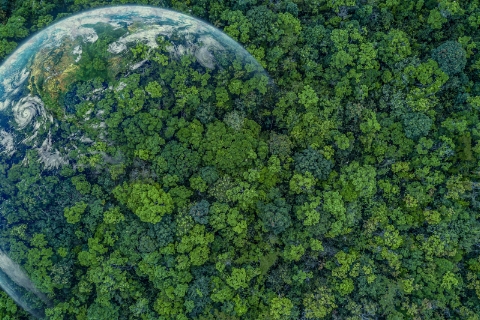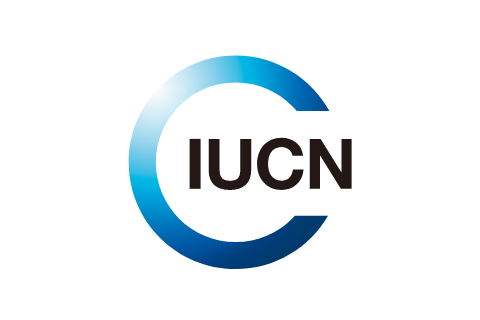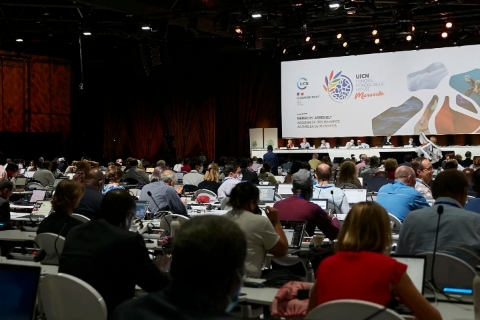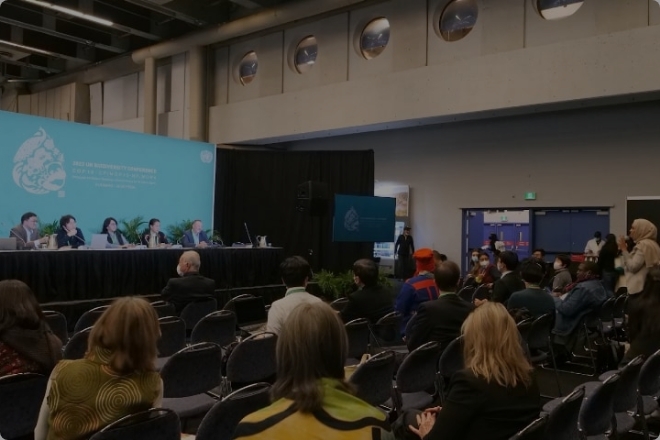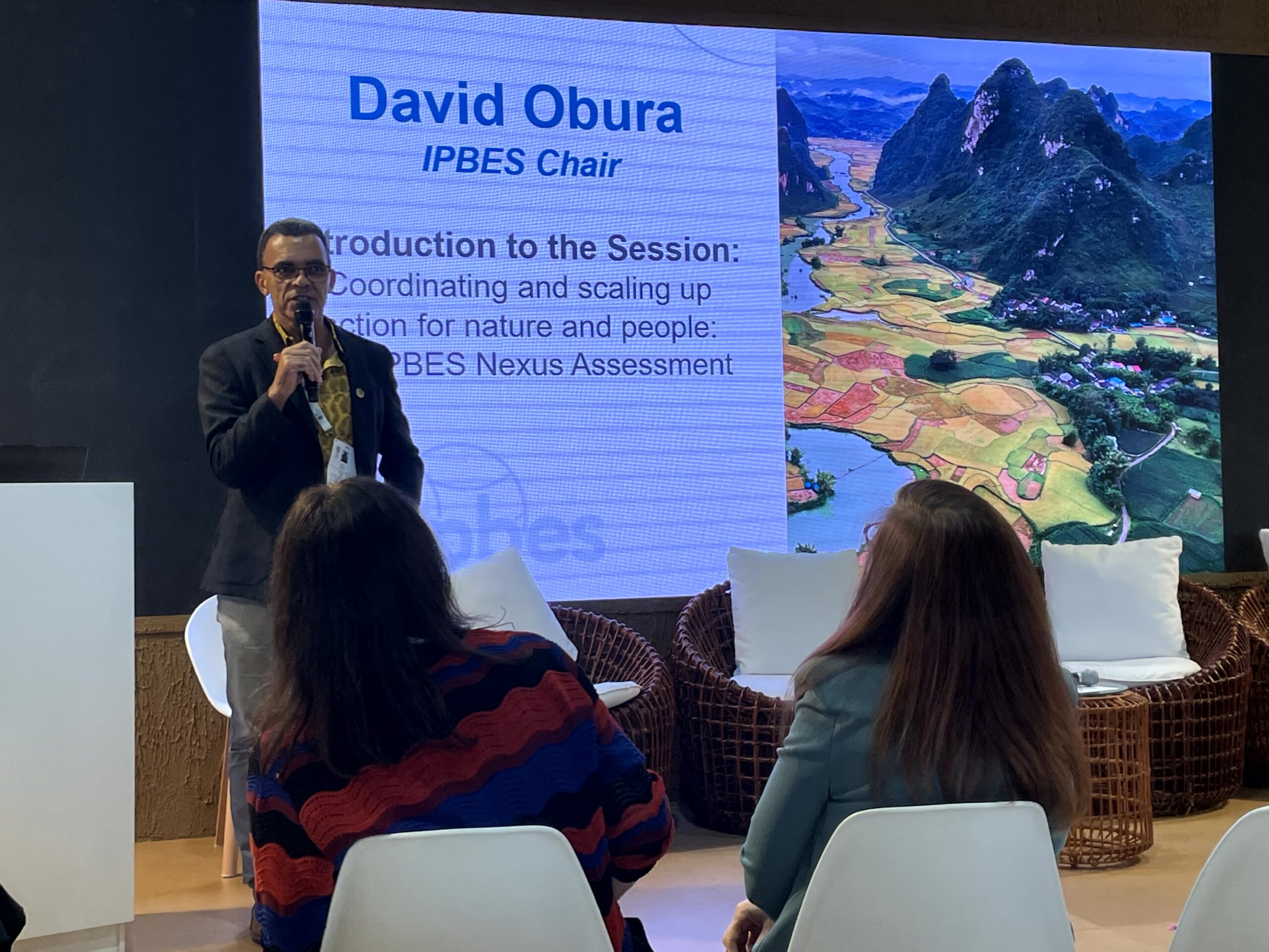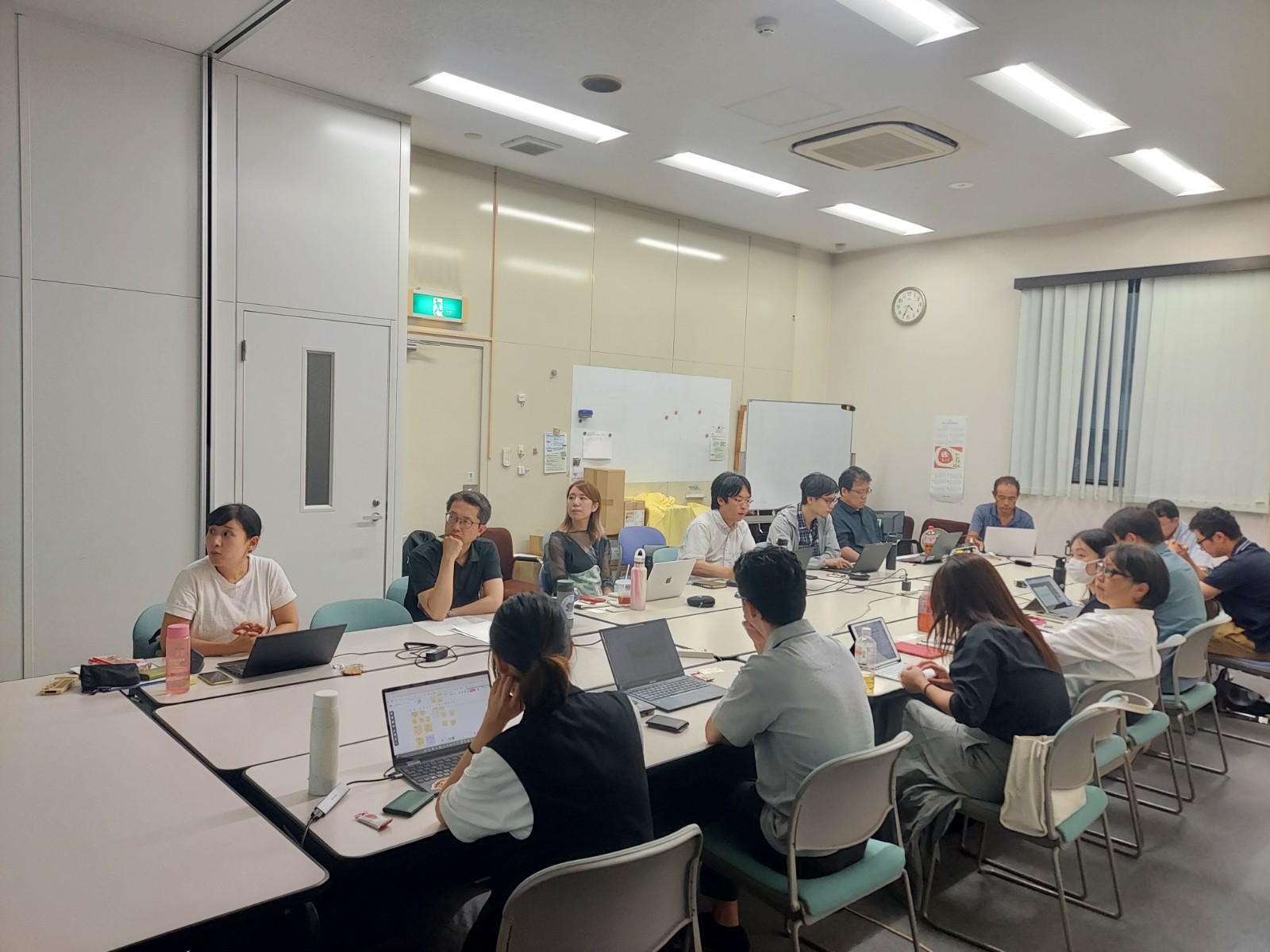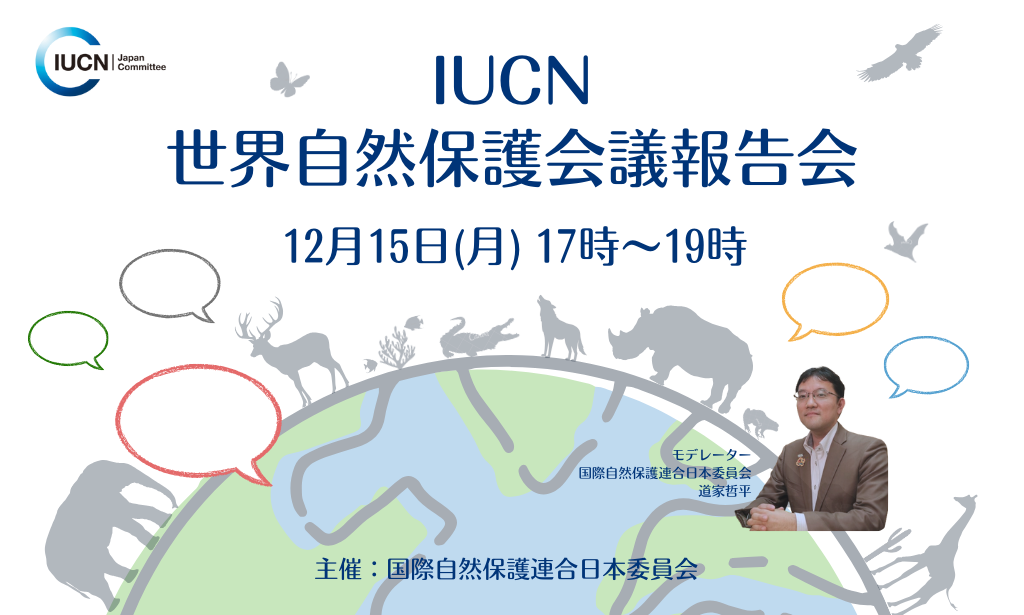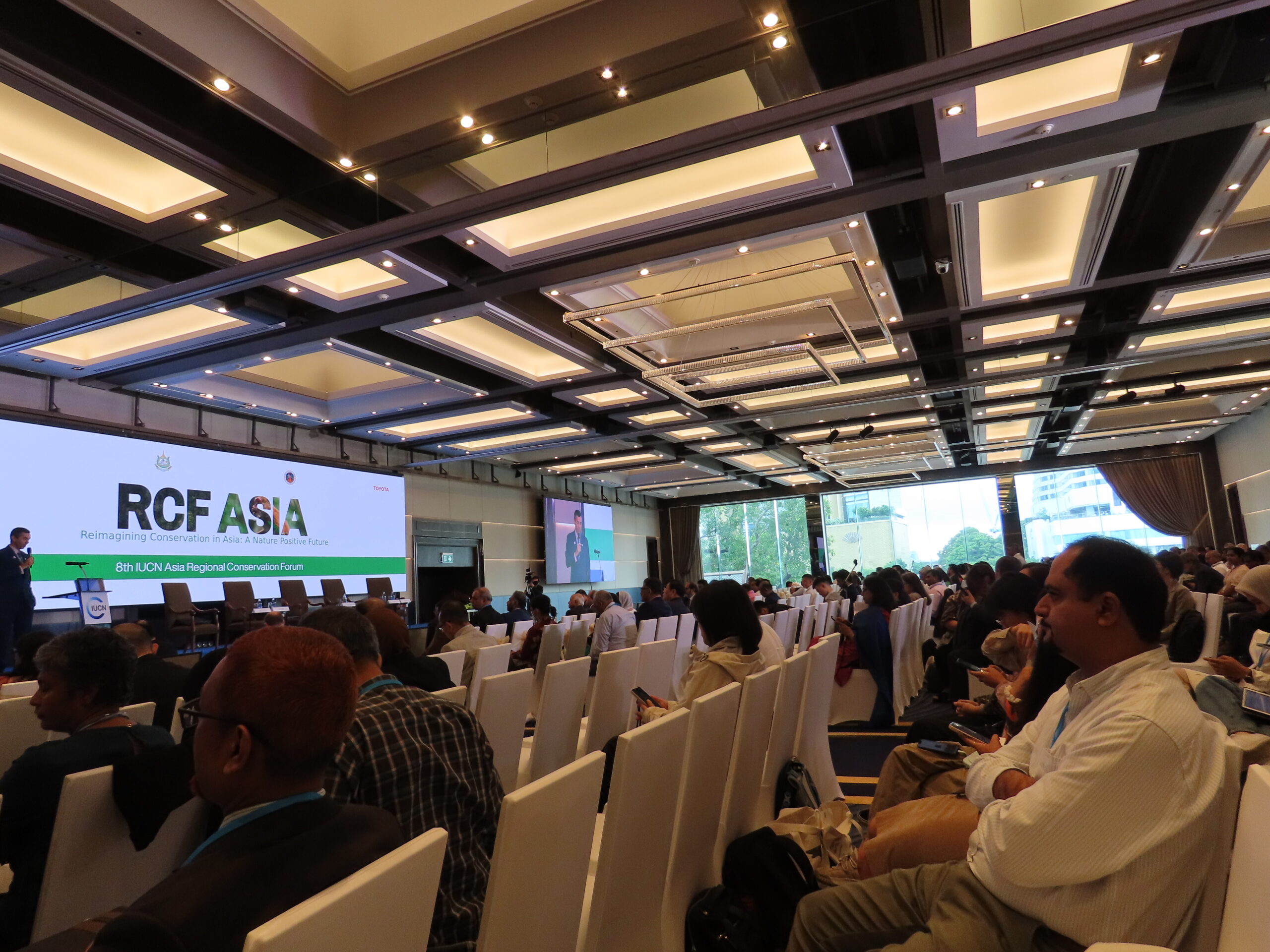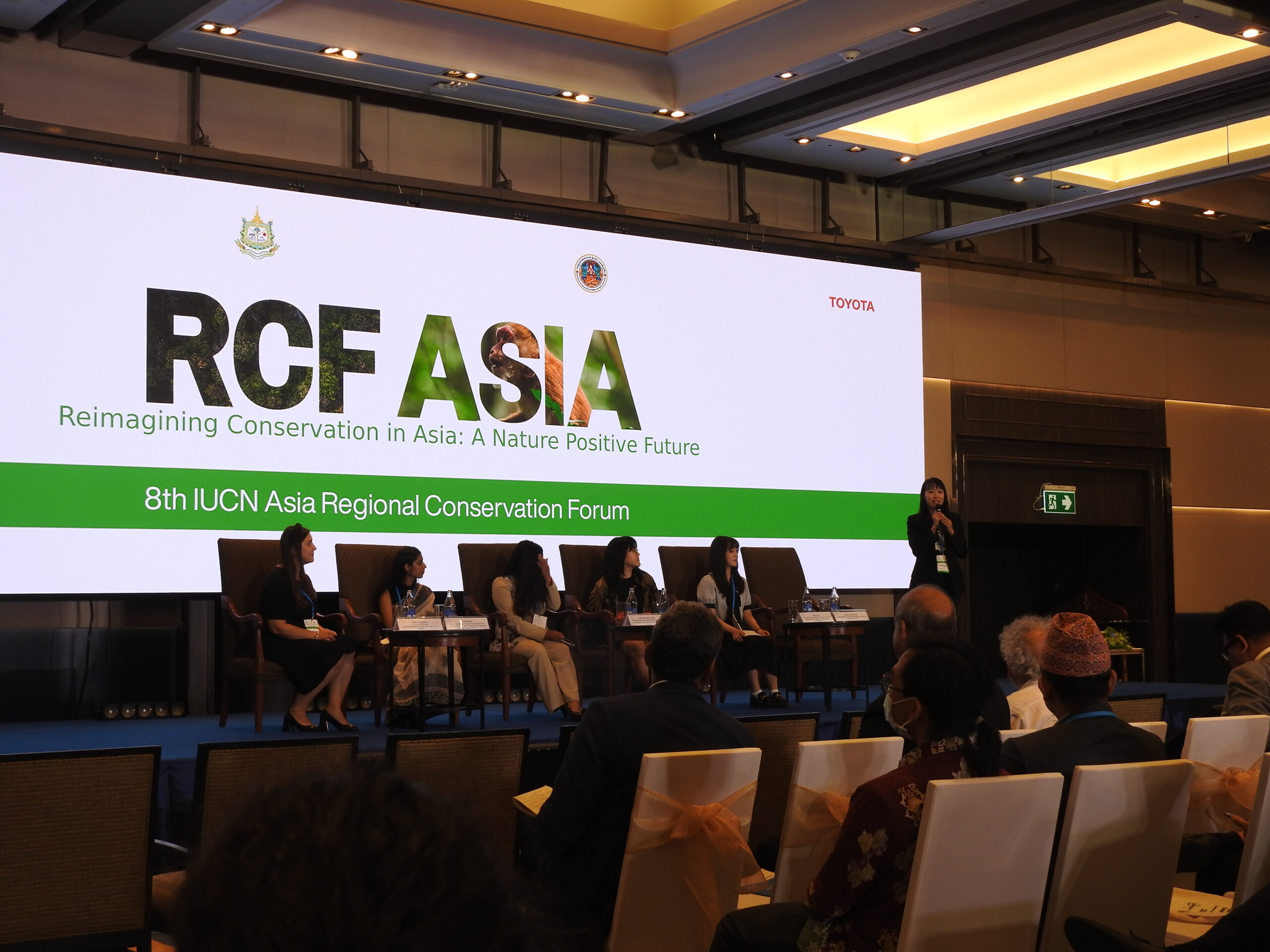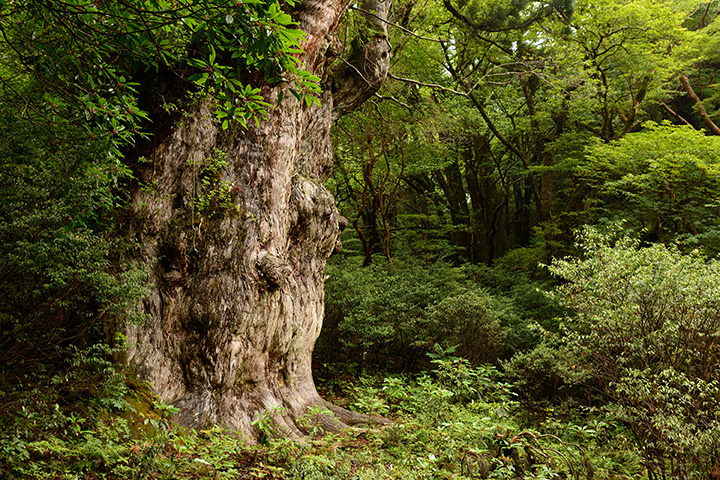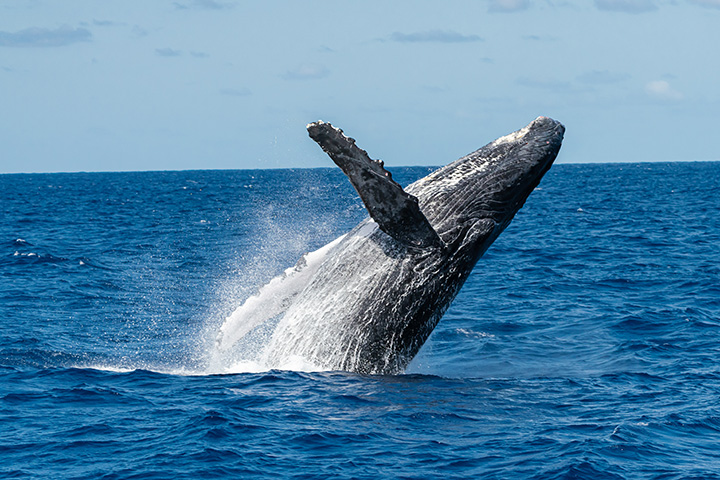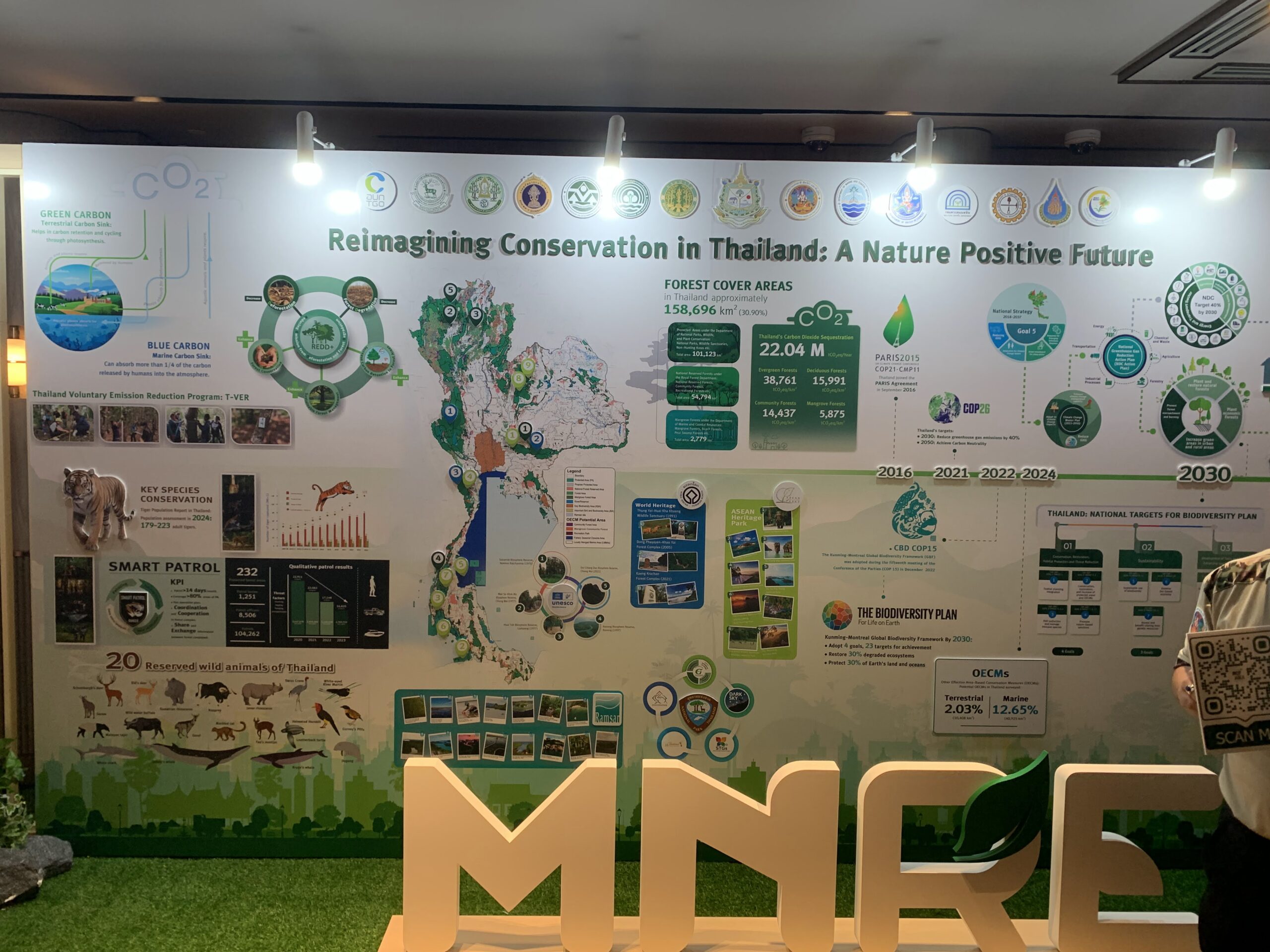
豊かな生物多様性と自然資源を持つタイは、世界的な保全活動の最前線に立っています。
2024年9月3日から5日にかけてバンコクで開催された第8回IUCNアジア自然保護フォーラム(ARCF)では、タイがアジアおよび世界の保全の未来を形作る重要な役割を果たすことになります。ARCFのメイン会場の外のロビーには、タイ政府がネイチャーポジティブな未来を築くための包括的な取り組みを強調したポスターが掲げられています。本記事では、そのポスターに紹介されている主要なイニシアティブに焦点を当て、タイのかけがえのない自然遺産を守るためのコミットメントを詳しく掘り下げます。
SMARTパトロール:タイの野生動物を守る取り組み
SMARTパトロールシステムは、保護地域を管理し、商業的価値の高い種を守るための画期的なイニシアティブです。タイの国立公園野生動植物保護局(DNP)と野生生物保護協会(WCS)タイプログラムが協力して開発したこのSMARTシステムは、最先端の技術と科学を統合し、パークレンジャーの活動効果を高めています。SMART(Spatial Monitoring And Reporting Tool)データベースに支えられたこのシステムは、レンジャーに活動に必要なツールと情報を提供し、タイの生物多様性ホットスポットをより効果的に保護します。このシステムは二つのレベルで運用されています。
- オペレーションレベル:レンジャーは理論的知識と実践的なスキル(パトロール技術、体力、応急処置、GPSデバイスやデジタルカメラの使用方法など)を含む包括的なトレーニングを受けます。これにより、フィールドパトロールの実践やデータ収集が向上し、レンジャーの士気と関与が高まります。
- 管理レベル:管理者はSMARTデータベースを活用してデータの収集、分析、報告を行うトレーニングを受けます。これにより、戦略的なサイト管理計画の実施が支援され、保護地域における意思決定とガバナンスが強化されます。
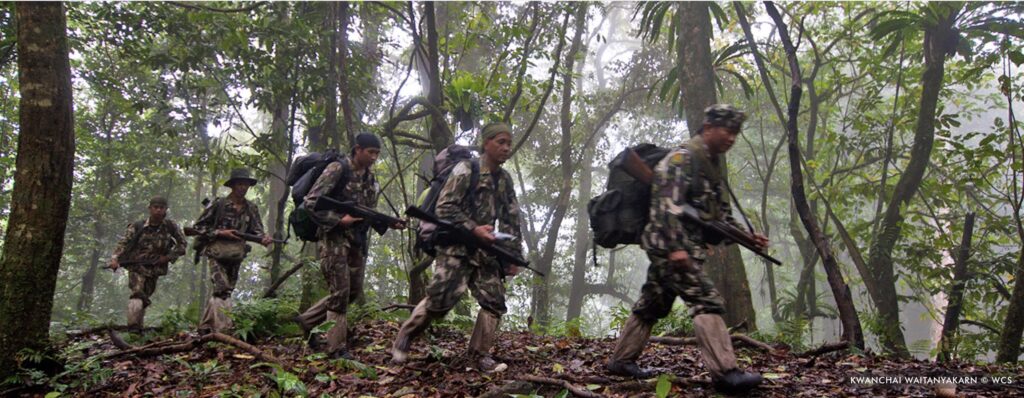
Screenshot
[1]: SMART PATROL SYSTEM, https://thailand.wcs.org/en-us/Initiatives/SMART-Patrol-System.aspx#:~:text=In%20Thailand%2C%20this%20development%20was,of%20pride%20in%20their%20duty., accessed Sep 4, 2024
2006年にユネスコ世界遺産に指定されているフアイ・カーケーン野生生物保護区およびトゥンヤイ・ナレースワン野生生物保護区で導入されたこのSMARTパトロールシステムは、タイ各地の多くの国立公園に拡大し、密猟圧力を大幅に減少させ、地域の保全活動の模範となっています。
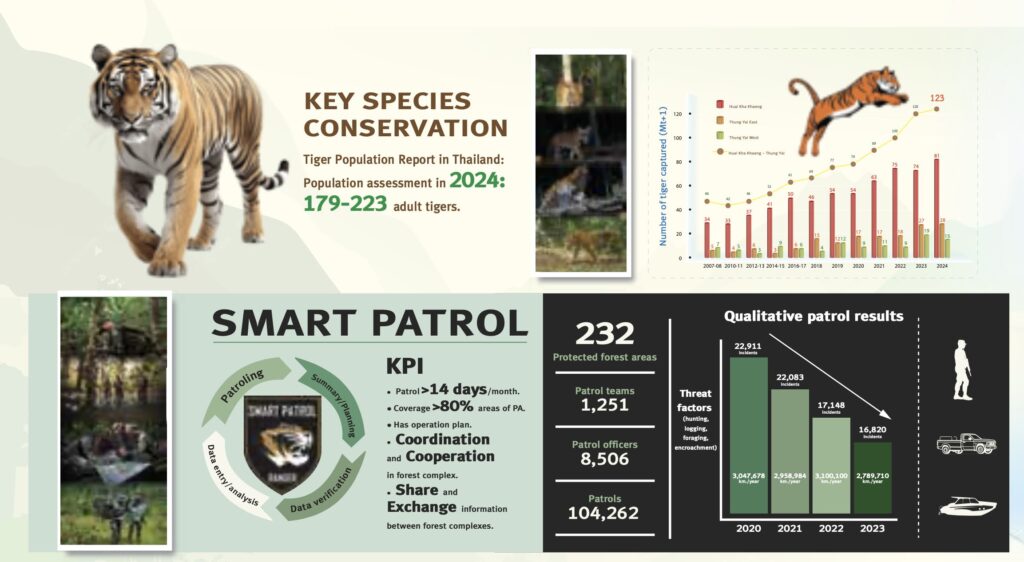
Screenshot
[2]: Reimagining Conservation in Thailand: A Nature Positive Future
森林保全:持続可能性の重要な柱
タイの森林保全活動は、王立森林局(RFD)と天然資源環境省が主導し、環境的、社会的、経済的利益をもたらす持続可能な森林管理を優先しています。国土の10.75%を占める110以上の国立公園と、7.13%を占める57の野生生物保護区は、タイの生物多様性の維持に重要な役割を果たしています。タイには15,000種以上の植物種と約140万種の動物種が生息しており、その多くは固有種です。 地域住民の参加は、タイの森林保全戦略の中心です。地域の住民が保全活動に積極的に参加する6,800以上のコミュニティ森林プロジェクトがあり、これらのプロジェクトでは、エコツーリズムを促進することで、国立公園内での観光関連の活動により地域住民が利益を得つつ、森林保護にも貢献しています。
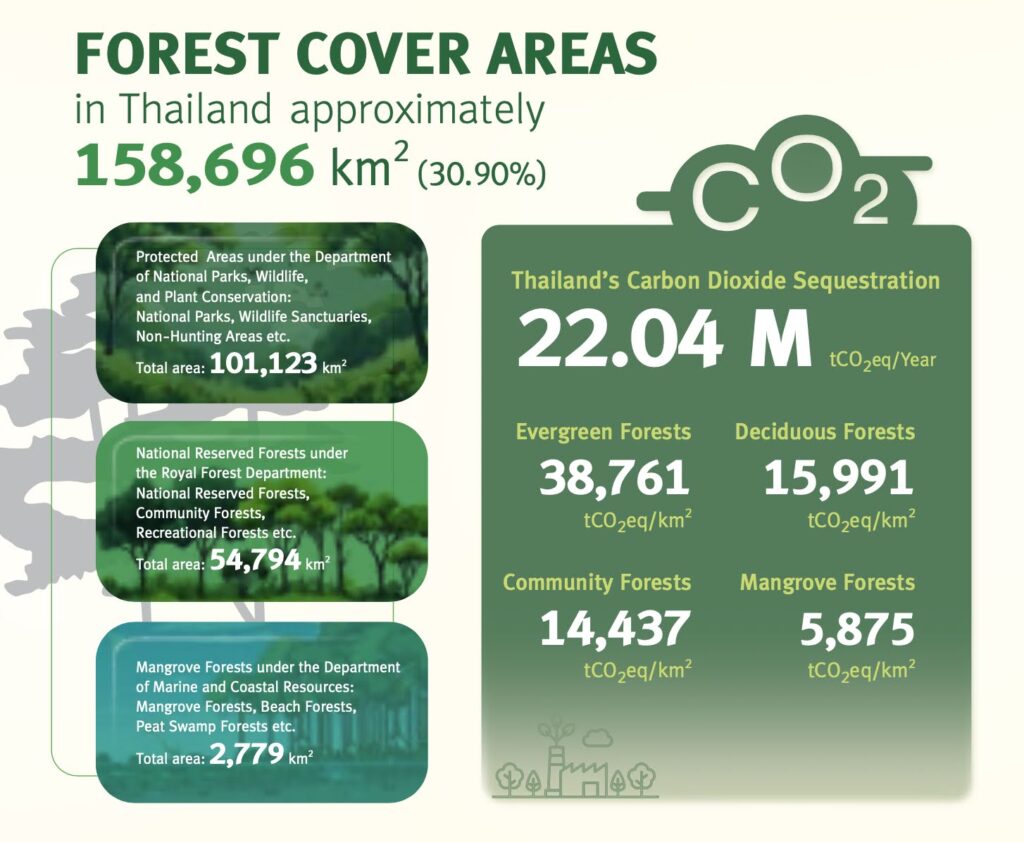
Screenshot
[2]: Reimagining Conservation in Thailand: A Nature Positive Future
さらに、気候変動との闘いへのコミットメントは、森林被覆の維持を目指す取り組みからも明らかです。森林は重要な炭素吸収源として機能しており、タイはREDD+(森林減少と劣化による排出削減)などの国際的な枠組みに参加することで、持続可能な森林管理への国際的な取り組みに力を入れています。
[3]: Ministry of Natural Resources and Environment, Forestry in Thailand
ネイチャーポジティブな未来へ向けたタイとその先
第8回IUCNアジア自然保護フォーラムを主催するタイは、森林保全や野生生物保護の分野における先進的な取り組みが注目を集めることでしょう。SMARTパトロールシステムからコミュニティに基づく森林管理まで、タイの取り組みはその自然遺産を守るための包括的なアプローチを示しています。テクノロジー、科学、地域社会の関与を統合することで、タイは生物多様性を保護するだけでなく、世界的な保全目標にも貢献しています。
タイのネイチャーポジティブな未来へのビジョンは、同様の課題に直面する他国にとってのモデルとなり得ます。タイが保全の分野で革新を続け、リーダーシップを発揮する中で、地域や世界が自然とより調和した持続可能な関係を築くための集団的な行動を促すインスピレーションを与えるでしょう。
Reimagining Conservation in Thailand: A Nature Positive Future
Thailand, with its rich biodiversity and abundant natural resources, stands at the forefront of global conservation efforts. As the host of the 8th IUCN Asia Regional Conservation Forum (RCF) in Bangkok from September 3-5, 2024, the country will play a pivotal role in shaping the future of conservation in Asia and beyond. Displayed prominently outside the main venue of the RCF, a poster highlights the Thai government’s comprehensive efforts to forge a nature-positive future. This article delves into key initiatives featured on the poster, emphasizing Thailand’s commitment to conserving its invaluable natural heritage.
SMART Patrol: Protecting Thailand’s Wildlife
The SMART Patrol System in Thailand is a groundbreaking initiative for managing protected areas and safeguarding species of high commercial value. Developed by the Department of National Parks, Wildlife and Plant Conservation (DNP) in collaboration with the Wildlife Conservation Society (WCS) Thailand Program, the SMART system integrates cutting-edge technology and science to bolster the effectiveness of park rangers.
Supported by the SMART (Spatial Monitoring And Reporting Tool) database, the system provides rangers with essential tools and information to better protect Thailand’s biodiversity hotspots. The system operates on two levels:
- 1. Operational Level: Rangers receive comprehensive training, covering both theoretical knowledge and practical skills such as patrol techniques, physical fitness, first aid, and the use of technology like GPS devices and digital cameras. This enhances field patrol practices and data collection while fostering greater morale and engagement among rangers.
- 2. Management Level: At this level, site managers are trained to utilize the SMART database for data collection, analysis, and reporting. This supports strategic site management planning, ensuring informed decision-making and robust governance over protected areas.

Screenshot
[1]: SMART PATROL SYSTEM, https://thailand.wcs.org/en-us/Initiatives/SMART-Patrol-System.aspx#:~:text=In%20Thailand%2C%20this%20development%20was,of%20pride%20in%20their%20duty., accessed Sep 4, 2024
Since its introduction in 2006 at the Huai Kha Khaeng and Thungyai Naresuan Wildlife Sanctuaries (both UNESCO World Heritage Sites), the SMART Patrol System has expanded to numerous national parks across Thailand. It has significantly reduced poaching pressures and established itself as a model for conservation initiatives across the region.

Screenshot
[2]: Reimagining Conservation in Thailand: A Nature Positive Future
Forest Conservation: A Key Pillar of Sustainability
Thailand’s forest conservation efforts, led by the Royal Forest Department (RFD) and the Ministry of Natural Resources and Environment, prioritize sustainable forest management for environmental, social, and economic benefits. Over 110 national parks and 57 wildlife sanctuaries, covering 10.75% and 7.13% of the country’s area respectively, play a crucial role in preserving the nation’s biodiversity. Thailand is home to more than 15,000 species of flora and approximately 1.4 million species of fauna, many of which are endemic.
Community participation is central to Thailand’s forest conservation strategy. Over 6,800 community forest projects, encompassing 423,893 hectares of forest, actively involve local communities in conservation efforts. These projects often promote ecotourism within national parks, allowing local residents to benefit from tourism-related activities while contributing to forest preservation.

Screenshot
[2]: Reimagining Conservation in Thailand: A Nature Positive Future
Additionally, Thailand’s commitment to combating climate change is evident through initiatives aimed at maintaining forest cover, which acts as a crucial carbon sink. By engaging in global frameworks like REDD+ (Reducing Emissions from Deforestation and Forest Degradation), Thailand underscores its dedication to sustainable forest management on an international scale. [3]
[3]: Ministry of Natural Resources and Environment, Forestry in Thailand
A Nature-Positive Future for Thailand and Beyond
As Thailand hosts the 8th IUCN Asia Regional Conservation Forum, the country’s forward-thinking initiatives in forest conservation and wildlife protection will undoubtedly take center stage. Thailand’s efforts, from the SMART Patrol System to community-based forest management, represent a holistic approach to safeguarding its natural heritage. By integrating technology, science, and community involvement, Thailand is not only preserving its biodiversity but also contributing to global conservation goals.
Thailand’s vision for a nature-positive future could serve as a blueprint for other nations facing similar challenges. As the country continues to innovate and lead in the field of conservation, it stands poised to inspire collective action towards a more sustainable and harmonious relationship with nature across the region and the world.
IUCN-J Intern:
Danmeng CAI(University of Tsukuba)

